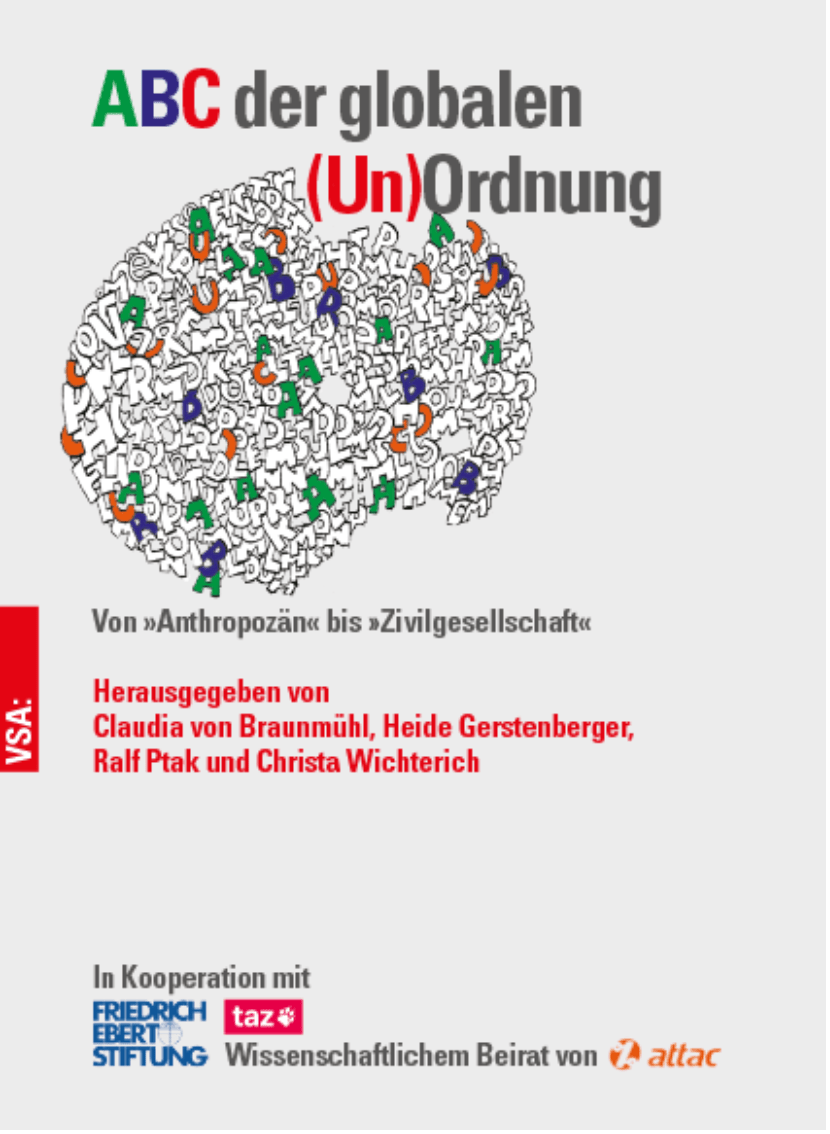ABC of the global (dis)order. From "Anthropocene" to "Civil Society
Abstract
The "ABC of globalisation" was published in 2005. Since then, the effects of neoliberal globalisation have become abundantly clear: the promise of prosperity has turned into a world of global (dis)order. 114 authors address current developments in 126 keywords, develop political points of reference and present alternatives. The following also applies to the new standard work of globalisation criticism: "Another world is possible".
While the triumph of neoliberal globalisation seemed unstoppable for a long time, the emergence of a new type of globalisation can be observed since the financial and economic crisis of 2008. Even among its greatest proponents, the once prevailing euphoria of a dynamic of progress encompassing all regions of the world is increasingly giving way to panic in the face of the global upheavals that have long since spread from the periphery to the centre.
From the very beginning, globalisation has been associated with "poverty", "deregulation", violation of "human rights" and "neoliberalism" - these keywords from the "ABC of Globalisation" published in 2005 have been updated and reworked and are also part of the new book.
In the meantime, the ecological crisis ("climate change") has worsened, socio-economic inequalities ("competition") have increased worldwide due to the "imperial way of life" and "outsourcing", "flight", "border regimes" and "migration" are making the misery of large parts of the global South highly visible and "racism" and "right-wing populism" are gaining power in all regions of the world. In addition, "digitalisation" and "artificial intelligence" are increasingly shaping the world of work and everyday life in general.
All of these keywords and many more analyse, clearly present and critically evaluate the changed conditions of the now global (dis)order since 2005.
